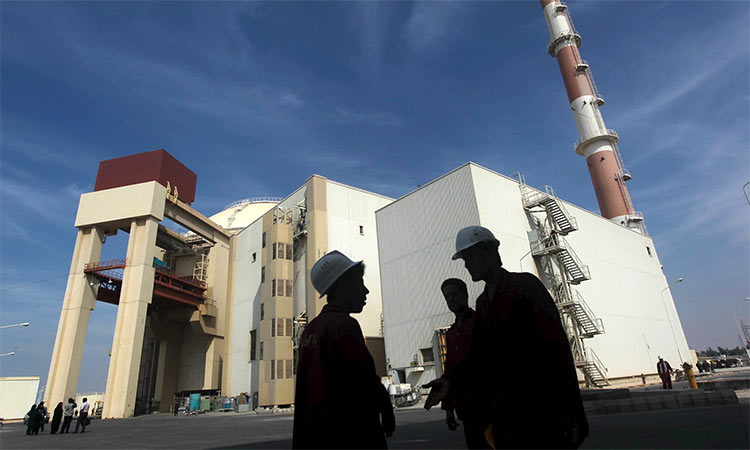IRAN
Asking for ‘concrete measures’ on nuke facilities

There is a deep suspicion in the West that Iran is set to enrich the uranium to weapons-grade and be in a position to make several nuclear bombs.
Rafael Grossi, Director-General of the International Atomic Energy Agency (IAEA), urged Iran on Tuesday that it take “concrete” steps to improve ties between the UN nuclear watchdog and Iran. Grossi said, “What we are looking at is concrete measures that could make this [deal] operational.” He said that Iran could take “very practical and tangible measures that can be implemented in order to accelerate.”
Last September, Iran withdrew accreditation of the IAEA inspectors. In October, IAEA submitted a report saying that Iran possessed three times the enriched uranium that was permissible in the 2015 deal made with the United States and other European powers including France and Germany, apart from Russia and the United Kingdom. Grossi was in Isfahan to attend an international science conference hosted by Iran, where its civilian nuclear facility in Natanz near Isfahan is located. Atomic Energy Organisation (AEO) of Iran head Mohammad Eslami said at the joint press conference with Grossi in Isfahan, “We continue interactions over unresolved issues. The important point is that Mr. Grossi takes the necessary actions to settle the problems that are mainly political.”
When Donald Trump became president of the US in 2016, he pulled out of the nuclear cooperation deal signed with Iran under President Barack Obama. Ever since the return of Joe Biden in 2021, efforts had been on to revive the deal. Israel has been opposing the deal tooth and nail. The attempt of the IAEA is to restore the inspector regime with Iran’s nuclear facilities. There is a deep suspicion in the West that Iran is set to enrich the uranium to weapons-grade and be in a position to make several nuclear bombs.
Iran denies that it intends to make nuclear weapons and insists that its nuclear programme is for peaceful pursuits. At the first international conference on Nuclear Science and Technology held at Isfahan, Eslami said that Iran was ready to share the nuclear technology with other countries.
The liberal moderates in Europe and the US believe that it is better to deal with Iran directly and keep its nuclear programme within the range of the IAEA inspectors, instead of keeping it out which could be more dangerous. There are hardliners in the West, and Trump is only an extreme example, who think that Iran should not be given any leeway, and that Tehran must keep its nuclear facilities open to full inspection of international teams. Iran considers this a challenge to its sovereignty. The 2015 deal was a compromise, where the West’s economic sanctions against Iran are withdrawn in return for Iran’s cooperation. But equations between Iran and the West have always been volatile, and each side feels provoked by the other.
The IAEA has been trying to tread a balanced line between the two sides, though many believe that the UN nuclear watchdog was under the influence of Western powers, and that it was not a neutral body which it should have been. What is lacking between Iran and the West, and Iran and IAEA, is trust. There is a huge trust deficit, which is very unfortunate.
But the efforts of IAEA chief Grossi to keep the tenuous ties between the two sides is laudable. Iran has also been trying to be open to the overtures of the UN body. But there is little that the IAEA can do to deal with the present deadlock. The Americans and the Iranians have to speak directly to each other to resolve the differences. The back channels between the two sides have always been open, and it is a breakthrough here that will be reflected in the official stances of the two sides.
No comments:
Post a Comment